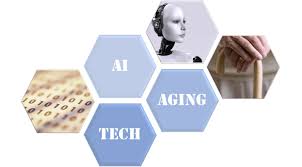 You can read about AI -- it's discussed everywhere. Searches reveal the many AI possibilities and current uses in healthcare. In fact, a Google search reveals multiple paid webinars you can attend today to learn more. Consultants are seizing the opportunity. You can read about AI’s trust issues in Harvard Business Review. (My favorite issue: ‘unknown unknowns.’) And check out healthcare investment in 2024. Follow the money – it might be in claims processing. And as for care management, did we mention the opportunity for AI-powered digital experiences? Some care will be delivered and supported with AI in the resident’s home, especially healthcare.
You can read about AI -- it's discussed everywhere. Searches reveal the many AI possibilities and current uses in healthcare. In fact, a Google search reveals multiple paid webinars you can attend today to learn more. Consultants are seizing the opportunity. You can read about AI’s trust issues in Harvard Business Review. (My favorite issue: ‘unknown unknowns.’) And check out healthcare investment in 2024. Follow the money – it might be in claims processing. And as for care management, did we mention the opportunity for AI-powered digital experiences? Some care will be delivered and supported with AI in the resident’s home, especially healthcare.
What you may not be reading, but just as viable – AI uses in senior living. True, some care will be delivered in an individual’s own home – for as long as possible. But for some individuals, staying at home is not viable – whether it is the home itself or the level of care required. And by senior living, that includes independent living, assisted living, memory care, skilled nursing facilities and nursing homes. All of these share common problems – the rising acuity of residents, ballooning costs of supplies and labor, scarce workers, long hallways, fall risk, a mound of data about the residents. Each of these can be assisted by one or another AI tool.
Multiple companies want to serve these markets. You know that everyone wants to age in place, no matter how unrealistic. But compare the inefficiency of the home (and home health) markets. Consider the cost of aging in place. Observe the ratio of one caregiver to one care recipient – the least efficient ratio of worker to work. Consider the home environments lacking any social connections to other residents. Senior living connections between staff members help form a team, hopefully all working together.
Senior living can benefit greatly from AI – and many companies see the possibilities. Assisting with care work, it includes observation of resident trips to-from-bathroom or detecting other wandering, automating repetitive paperwork tasks, noticing falls or fall potential. Consider how AI can use accumulated data to understand patterns and predict future change. And note how enabling voice interactions for residents help improve their quality of life.
Launching a new report – the Future of AI in Senior Living. If you know of tech providers or businesses that grasp this potential, please advise. This report process will begin with scheduled interviews in mid June with a goal of publishing the report in the fall. Please reach out with examples and stories to laurie@ageinplacetech.com.
[Note: See most recent report: The User Experience Needs an Upgrade]

 You can read about AI -- it's discussed everywhere. Searches reveal the many
You can read about AI -- it's discussed everywhere. Searches reveal the many